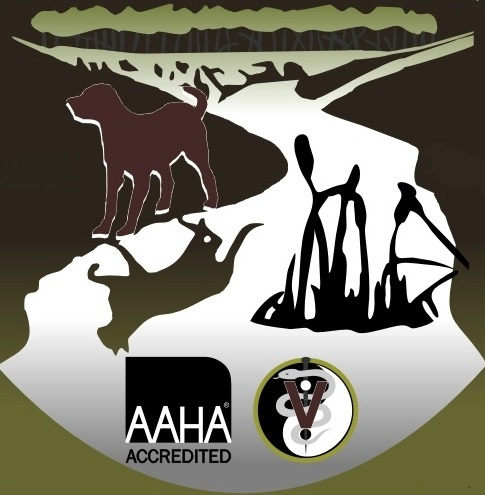NON-PROFESSIONAL DENTAL SCALING
Dr Julie Schell BSc(Hons), DVM, CVA, CVCHM, CVC
Bow Bottom Veterinary Hospital
www.bowbottomvet.com
Dental disease in pets is very common, and fortunately with proper veterinary care it can be identified, treated and even prevented. The proper treatment includes professional veterinary dental examination which must be done under anesthesia to do it properly and thoroughly, dental radiographs, dental nerve blocks, surgical extractions, pain control medications, professional dental cleaning, scaling, polishing, and fluoride treatment. Root Canal procedures, bonding and composite restoration procedures, or surgical extraction with proper pain control and techniques are the only way to treat some of the severe damage and disease. Your veterinarian will prescribe proper pain control medication, antibiotics, probiotics, and healthy, safe home care products such as Healthy Mouth and Oxyfresh Pet Gel.
Some pet owners have been recently propositioned and solicited by several “non-professional dental scaling” companies from British Columbia that come to various dog grooming parlors in Calgary, as well as other Canadian cities. These companies performing their dangerous procedures also label techniques as “anesthesia-free dentistry” . However, their procedures are unsafe and inhumane and I do not feel that any animals should have to endure these unsafe procedures.
The dangers and trauma induced by non-veterinary, non-anesthesia dental scaling are severe and plentiful. It results in damage to dental structures, incomplete cleaning of teeth, and missed dental disease. It is traumatic and painful to the pet and not helpful. Dental disease processes develop underneath the gum line, and proper dental procedures require radiographs and trained veterinary dental examination in order to determine the severity and course of best treatment for the pet. From a chiropractic standpoint, “non-professional dental scaling” causes harmful stress on the pet’s spine and extremities as their heads and bodies are held in place by the non-professional’s legs as evidenced in many videos: http://www.youtube.com/watch?v=eWLazsWuXQE Animals are often pretzeled in between the person’s legs in order to hold them still. This is definitely traumatic and dangerous and potentially life-threatening to pets, especially if their chests or necks are held tightly and constricted. Also, debris such as tartar and loose teeth can be released by the scaling procedures, and can be swallowed causing choking of the patient and aspiration pneumonia. Pets may bite down on the dental instruments used, resulting in trauma to their teeth, gums, palate and tongue.
It is also unsafe for the person performing ultrasonic scaling on an awake patient, as their fingers and faces are a high risk of becoming bitten. When an animal bites a human, not only does the human get injured but the animal’s jaw and teeth can also become damaged.
Also, often, infected, mobile teeth that need to be extracted are given “non-professional ultrasonic treatment” which is very painful. An excellent video discussing the dangers associated with non-anesthesia, non-professional dental scaling should be observed: http://www.youtube.com/watch?v=tvzaUlDUAhU
Non-professional dental scaling is not recommended by me, my colleagues, the Alberta Veterinary Medical Association, the American Animal Hospital Association as well as board certified veterinary dentists. It is dangerous and results in much more harm than any good. An excellent article by Dr Fraser Hale, a board certified veterinary dentists is present on: http://www.toothvet.ca/PDFfiles/Anesthesia-free.pdf
Veterinary dentistry should only be performed only by educated, trained veterinary professionals. The American Animal Hospital Association has published guidelines to optimize the safety, effectiveness and ethics and is listed here: https://www.aahanet.org/PublicDocuments/Dental_Guidelines.pdf
We proudly follow these guidelines, providing high levels of veterinary care.
Tooth care is very important in pets. However, your veterinarian and veterinary team are the most well trained people to help your pets optimally. Before allowing any dangerous types of procedures by non-veterinary companies on your pet, discuss proper dental health with us.



